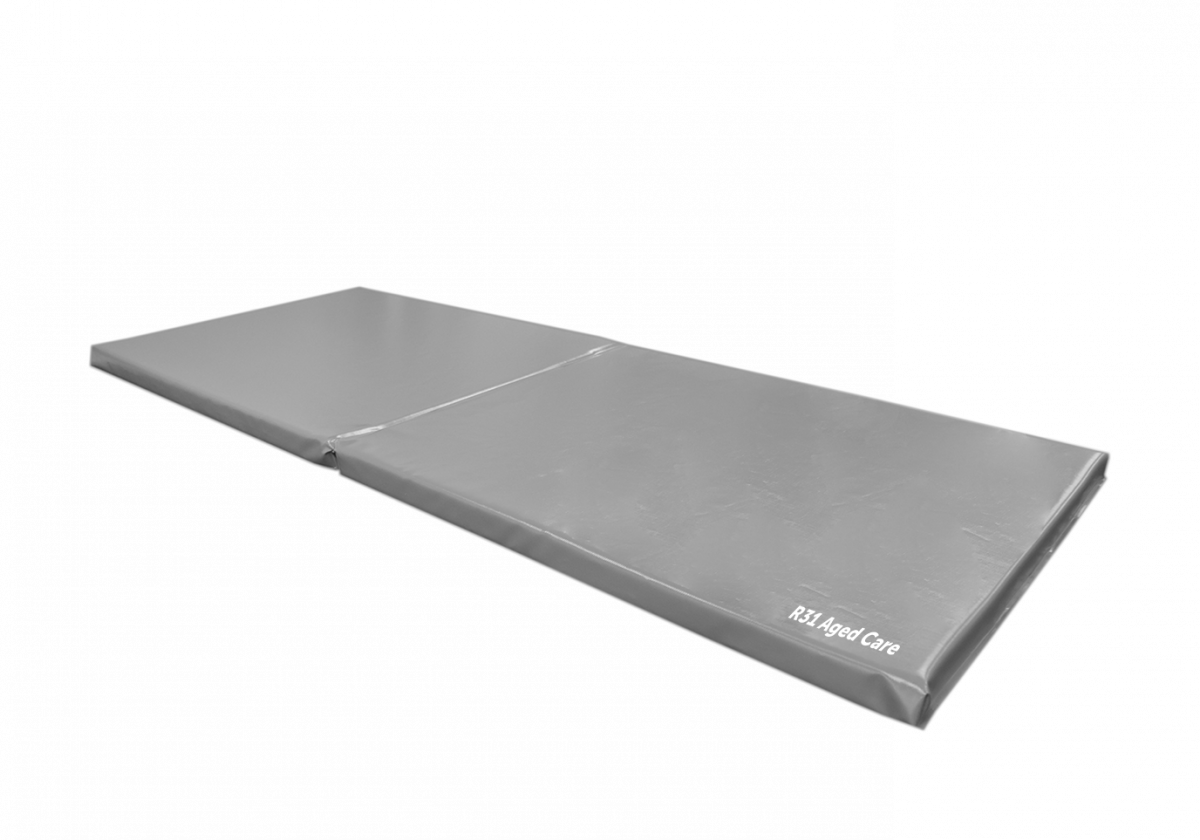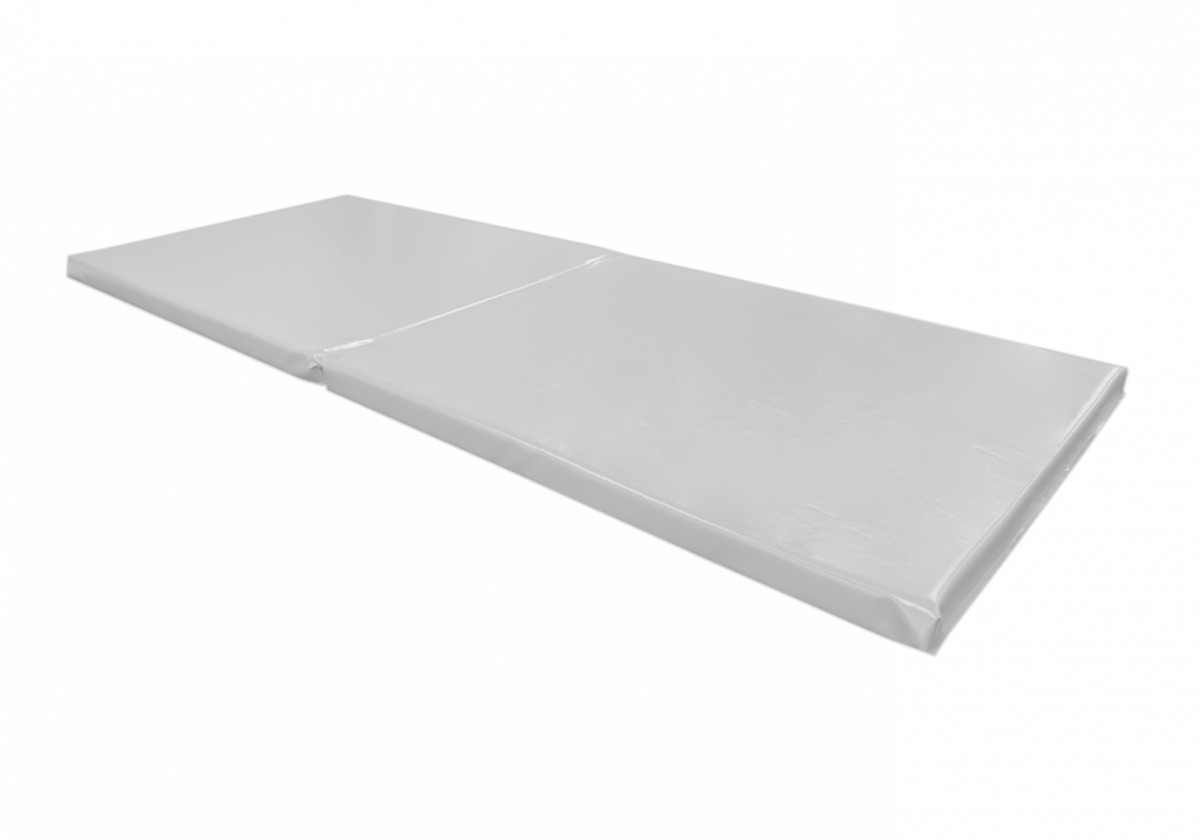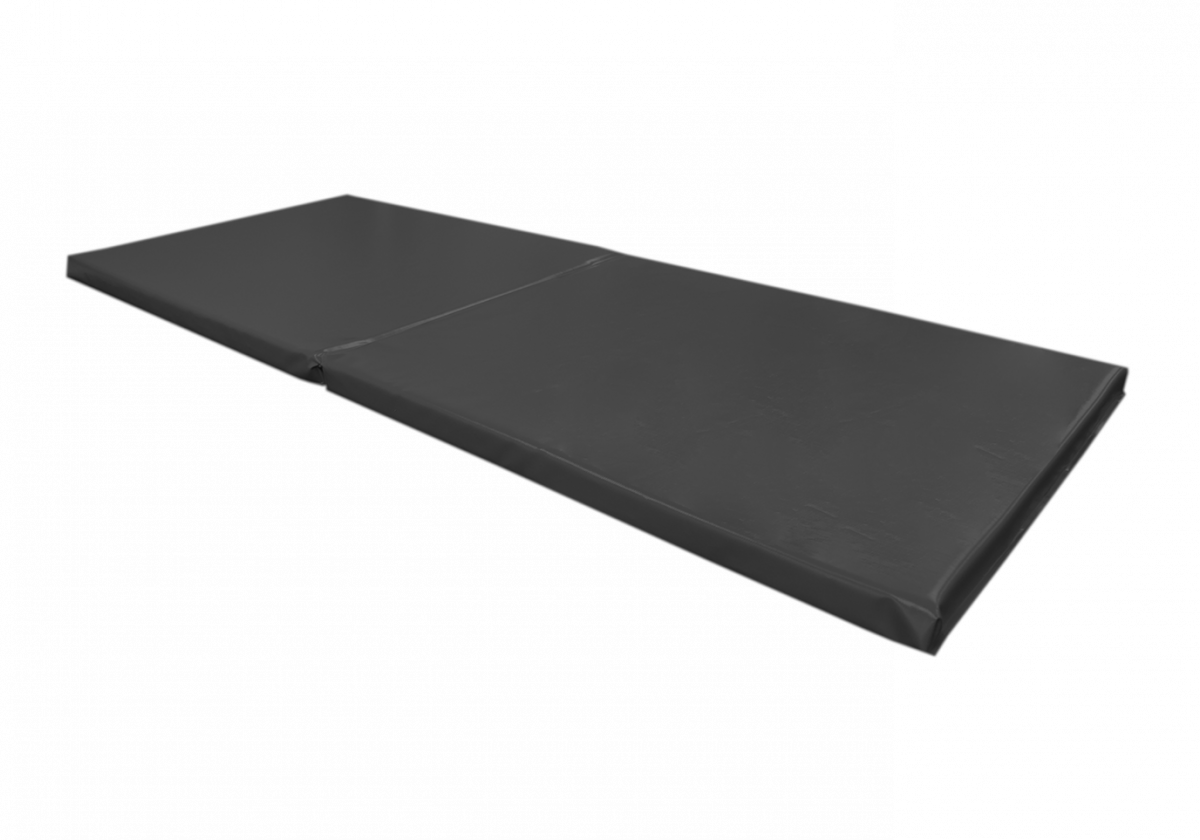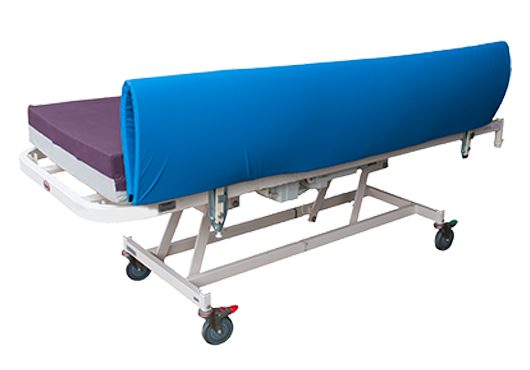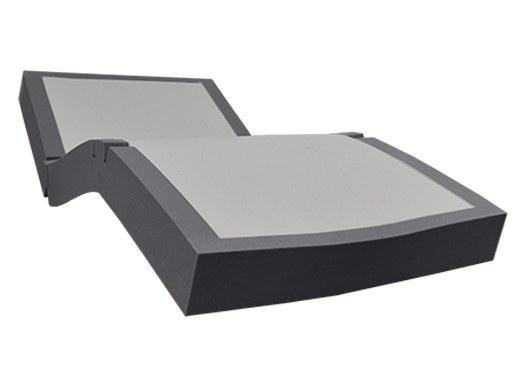Finalé Standard Floor Mat
Finalé Fall Protection Floor Mats
Forté Fall Protection Floor Mats provide impact protection for patients at risk of falling from the bed surface. Care staff can have peace of mind that the Finalé Fall Mat utilises an extremely high impact absorbing foam core for superior patient protection, whilst meeting any infection control and WH&S concerns. Convenient, lightweight, and durable, the Finalé Fall Mats are an essential part of any facility falls-management program.
Features

FULLY SEALED & ENCLOSED HEAVY DUTY PVC2 COVER
- Wipe-clean, Hygienic
- 100% Waterproof
- Heavy Duty, Robust & Hardwearing
- 100% waterproof
- Anti-Microbial Protection
- Meets Source 5 Fire Retardant Standards body fluids
- Superior resistance to disinfection chemicals
Learn more about PVC2 Covers
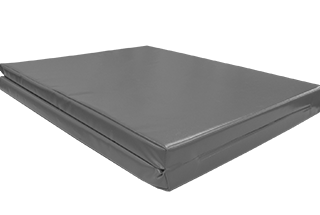
CONSTRUCTION
- Fully sealed and enclosed, no point of entrance to foam core
- Folds in half for storage
- Robust seams, Reinforced Critical Stress Points
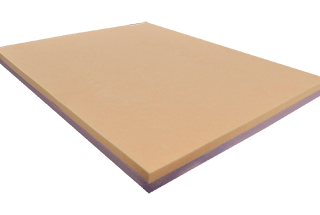
DUAL DENSITY, HIGH IMPACT ABSORBINGFOAM CORE
- Softens patients impact in event of a fall
- High quality, durable foam
- Folds for Storage

FOLDS FOR STORAGE
- Easy to relocate
- Compact and space-saving
Specifications
About the Finalé Mat
Standard Fall Protection Floor Mat

Falls Protection
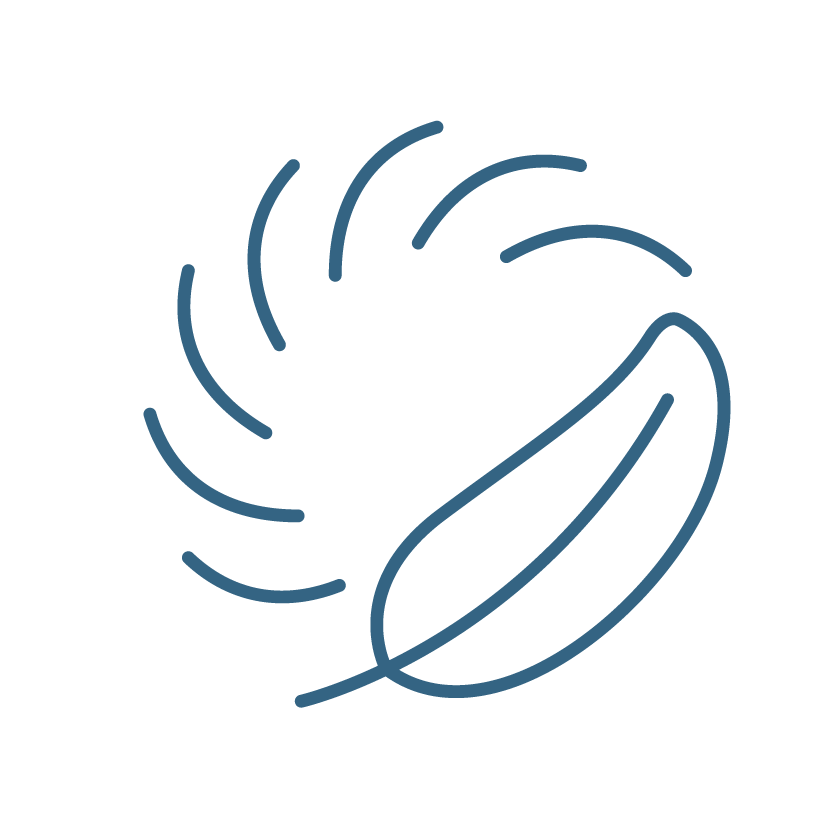
Gentle Care

Hygienic
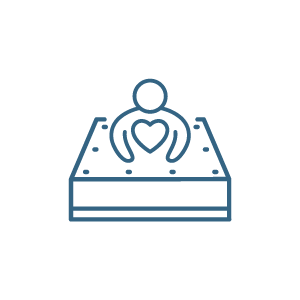
Safety
WHY FOCUS ON FALLS?
According to the Australian Commission on Safety and Quality in Health Care, Each year, patients in Australian hospitals experience a large number of falls, which collectively cause significant harm.
In 2015–16, 1,756 such falls occurred in public hospitals. This equates to 4 falls causing harm per 10,000 hospitalisations in 2015–16 in Australian public hospitals.
Fall-related injury is one of the leading causes of hospital-acquired morbidity and mortality in older Australians, and leads to pain, bruising and lacerations and fractures. Falls can also lead to intracranial bleeding, which can cause confusion, drowsiness, clouding, loss of consciousness and headache. A fall can instil a fear of falling, in turn leading to a loss of confidence and decline in mobility, and an injurious fall can increase the likelihood of discharge to a residential aged care facility. Falls in the hospital which cause harm, such as intracranial injury, fractured neck or femur and other fractures, also prolong the length of stay.
Patients experiencing one of these falls remain in hospital for 18.8 days longer on average than patients who don’t experience this hospital-acquired complication. The national average cost per admitted acute overnight stay is $2,074. Each hospitalisation involving a hospital-acquired fall injury may therefore be associated with $38,991 in extra costs. In many cases, falls causing harm are preventable. Significant reductions in injurious fall rates are being achieved in some hospitals through preventive initiatives. The rate of falls at Principal Referral Hospitals† was 4 per 10,000 hospitalisations in 2015–16. If all Principal Referral Hospitals above this rate reduced their rate to 4 per 10,000 hospitalisations, then 251 falls causing harm would have been prevented, and more when other types of facilities are considered.
According to Address for correspondence: Dr Rob Morris, Health Care for Older People, Queen’s Medical Centre, Derby Road, Nottingham NG7 2UH, UK, No fall is harmless, with psychological sequelae leading to lost confidence, delays in functional recovery and prolonged hospitalisation. Yet falls are not true accidents and there is evidence that a coordinated multidisciplinary clinical team approach can reduce their incidence. Identification of multiple underlying risk factors coupled with clear interventions to ameliorate the impact of each has been shown to reduce the incidence of inpatient falls by 20–30%. The implementation of complex multiprofessional interventions is challenging and successful schemes seek to nurture a culture of vigilant safety consciousness in all staff at the clinical interface. Strong leadership and organisational oversight help to combine this cultural evolution with relevant evidence and rigorous measurement of performance to improve patient safety.
Products like the Finalé Fall protection floor mats protect the severity of falls.
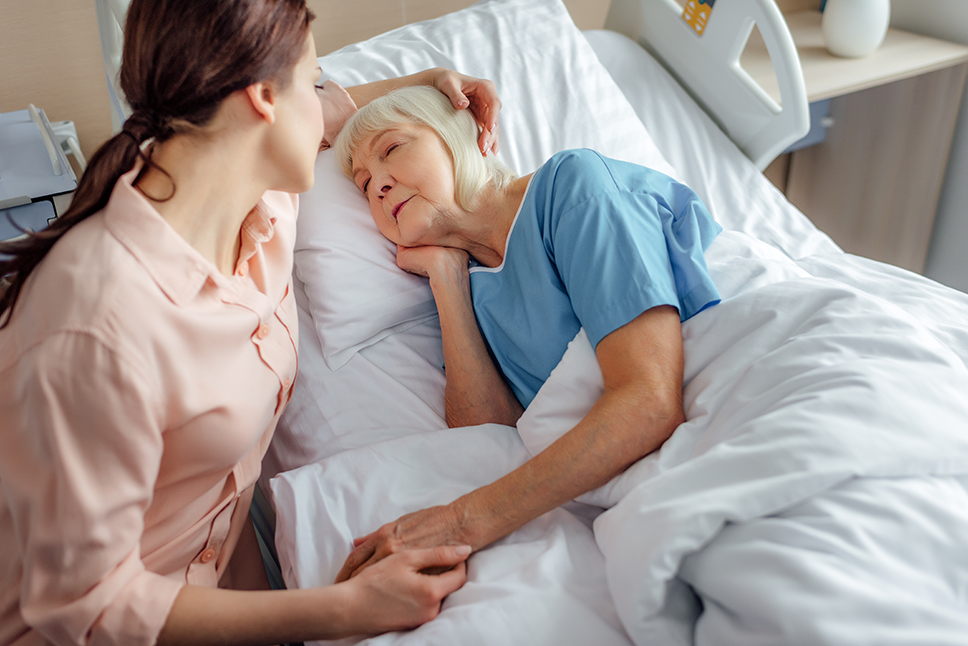
INFECTION CONTROL
Effective infection prevention and control are central to providing high quality healthcare for patients and a safe working environment for those who work in healthcare settings. The Australian Guidelines for the Prevention and Control of Infection in Healthcare (the guidelines) provide evidence-based recommendations that outline the critical aspects of infection prevention and control, focusing on core principles and priority areas for action.
The guidelines describe the best way to prevent and reduce infections occurring in healthcare settings including resistant infections. The guidelines include how to manage common infectious agents, for example, gastrointestinal viruses and evolving infectious agents, for example, influenza or multi-drug resistant organisms.
Any infectious agents introduced into the body can establish infection. In all healthcare settings, reusable medical devices, such as mattresses, should be handled in a manner that will prevent patients, healthcare workers and environmental contact with potentially infectious material. Post COVID-19 pandemic, Cleaning and infection control have become a bigger concern than ever before.
Appropriate reprocessing or precautions must be implemented for reusable equipment, such as the mattress to prevent patient-to-patient transmission of infectious agents.
Principles of reprocessing reusable medical devices include:
- Only Therapeutic Goods Administration (TGA)-included reusable medical devices should be used; before purchase, healthcare facilities should ensure that manufacturer’s reprocessing instructions are provided and are able to be followed by the healthcare facility.
- All reusable medical devices and patient-care equipment used in the clinical environment must be reprocessed according to their intended use and manufacturer’s advice.
However, Other standard precautions must take place. Standard precautions are basic infection prevention and control strategies that apply to everyone, regardless of their perceived or confirmed infectious status. Strategies include hand hygiene, personal protective equipment, cleaning, and appropriate handling and disposal of sharps. These are the first-line approach to infection prevention and control in health service organisations and are routinely applied as an essential strategy for minimising the spread of infections. Standard precautions minimise the risk of transmission of infectious agents from one person or place to another, even in high-risk situations, and render and maintain objects and areas as free as possible from infectious agents
Specifically, in relation to the support surface or any related accessories, there should be no exposed materials that will absorb fluid. As such, every mattress cover in the facility environment must have high frequency welded seams (as opposed to sewn) to meet infection control requirements and prevent seepage of fluid through open sewn seams. These electromagnetically fused seams protect against the risk of penetration fluid as they 100% seal off to prevent ingress of fluid or infection. To ensure extra strength, Forté reinforces welded seams with additional heavy duty stitching at stress points within the cover.
In addition, the Finalé fall mat covers and foam cores are treated with anti-microbial treatment to prevent the growth of mould and bacteria on soft surfaces. It is a recommendation that soft surfaces must be impregnated with antimicrobial (self-disinfecting) materials.
All Forté products are included and registered on the Australian Register of Therapeutic Goods (ARTG). Unless exempt, reusable medical devices must be ‘included’ onto the ARTG before they may be supplied in Australia.
Forté mattresses can withstand stringent infection control procedures and have been designed to suit facility standards so you can have peace of mind that all areas of your facility are a safe, clean environments for staff and patients.

IMPORTANCE OF PATIENT SAFETY
The Finalé Bevelled Slimline fall protection floor mat has been specifically designed to enhance the safety of patients and caregivers.
According to the World Health Organisation, Patient Safety is a health care discipline that emerged with the evolving complexity in health care systems and the resulting rise of patient harm in health care facilities. It aims to prevent and reduce risks, errors and harm that occur to patients during the provision of health care. A cornerstone of the discipline is a continuous improvement based on learning from errors and adverse events.
The occurrence of adverse events due to unsafe care is likely one of the 10 leading causes of death and disability in the world. In high-income countries, it is estimated that one in every 10 patients is harmed while receiving hospital care. The harm can be caused by a range of adverse events, with nearly 50% of them being preventable. Each year, 134 million adverse events occur in hospitals in low- and middle-income countries (LMICs), due to unsafe care, resulting in 2.6 million deaths.
Globally, as many as 4 in 10 patients are harmed in primary and outpatient health care. Up to 80% of harm is preventable. The most detrimental errors are related to diagnosis, prescription and the use of medicines.
Investments in reducing patient harm can lead to significant financial savings, and more importantly better patient outcomes. An example of prevention is engaging patients, if done well, it can reduce the burden of harm by up to 15%.
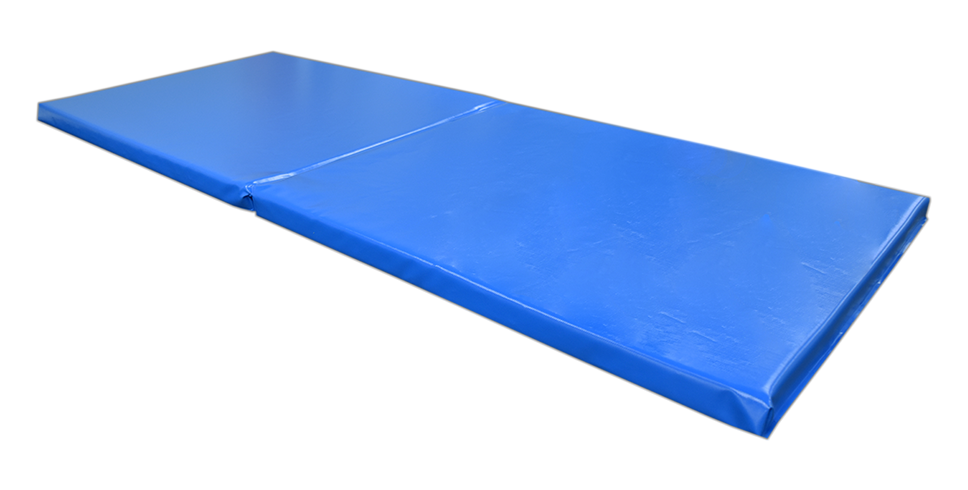
VERSATILITY BY BEING AUSTRALIAN MADE
Australian made by Forté Healthcare in Armidale NSW, the Finalé accessories are synonymous with quality, performance, longevity, and functionality and is trusted by leading Hospitals and healthcare professionals to deliver clinical results and positive outcomes.
Forté manufactures Finalé accessories to order which means they can be customised in size and configuration to suit a specific individual. Each patient has different anatomy which means one device is not always effective for all individuals.
Why is it important to purchase Australian made products?
By purchasing products from Forté you are investing in the future of pressure injury prevention in Australia, creating regional jobs and boosting our economy for the better of everyone. Australian Made for Australian Care.

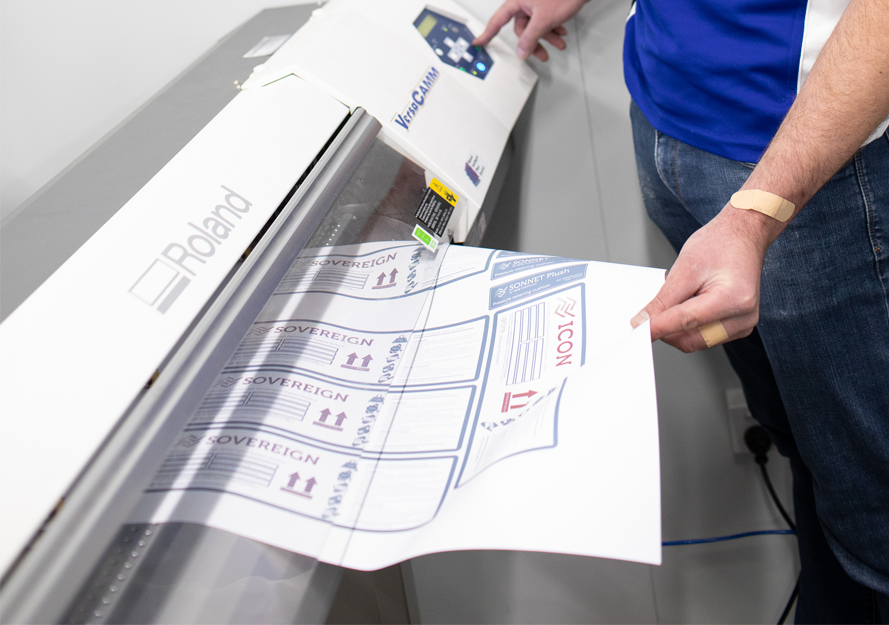
Manufacturing
Leveraging clinical expertise, with leading raw material technology and in-house manufacturing capabilities Forté Healthcare ensures optimal outcomes for pressure injury prevention, infection control and patient comfort.

Hear what Health Professionals say About Forté Healthcare Mattresses…

You’re Covered by Forté Healthcare’s ‘Successful Solution Guarantee’
At Forté Healthcare, we are so confident in the care and performance our support surfaces deliver, that we back our products and expertise with our ‘Successful Solution Guarantee’.
Here’s how it works:
Our team of specialists will help you navigate our product range to correctly match our support surfaces with your care environment and patient risk profile. This ensures you achieve the highest levels of patient care and pressure injury prevention.
If, for whatever reason the product we recommend isn’t helping you achieve the outcome you expected, we’ll work with you until it is. And in the unlikely event we still cannot provide the right solution.
We’ll refund you 100% of the charges to date.


